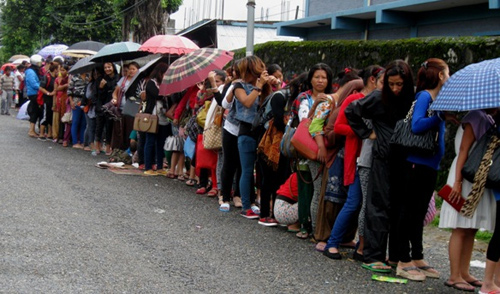More than 75,000 Nepalis taking Korean Language Test this year
Kathmandu, April 1
Altogether 75,607 job aspirants have submitted online application forms for the Korean Language Test slated for June 10 and 11 this year under the Employment Permit System of the Korean government.
The EPS Korea Section, under the Department of Foreign Employment, collected forms online between March 22 and 31. “The number of applicants has increased this year in comparison to 61,637 last year, because the government introduced online form collection this year,” said Baburam Khatiwada, director of EPS Korea Section. According to Khatiwada, labour demand from South Korea in 2018 has gone up three-fold to 10,200 against 3,100 in 2017.
Last year, the KLT was conducted in Kathmandu and Pokhara, but this year the Koreans are reluctant to establish exam centre in Pokhara. “We are trying to convince them to hold KLT from Kathmandu and Pokhara, as they did last year to facilitate applicants,” Khatiwada said.
Demand for labour in South Korea has gone up three-fold to 10,200 from 3,100 in 2017
This is the eighth series of KLT. Candidates selected from the KLT meet the basic requirement to apply for jobs in Korea. The validity of KLT is only for two years, which means those who pass the KLT exam cannot apply for jobs after two years. Only candidates in good health, who have not been involved in any criminal offence are eligible to apply.
The Human Resource Development Service of Korea develops a roster of those who clear the KLT and provides them with an opportunity to apply for jobs in Korea. Normally, fresh workers in Korea get employment opportunities in manufacturing, agriculture and livestock sectors. However, those who have worked in Korea legally for three years can apply for computer-based test and those who clear the CBT are eligible to work in service and construction sectors as well.
The basic monthly salary of a Nepali worker in Korea is 1,236,000 won (around $1,075). Till date, a total of 43,000 Nepali workers have received opportunities to work in Korea under the EPS and around 11,000 workers have already returned after completing their 58-month job placement in South Korea.






